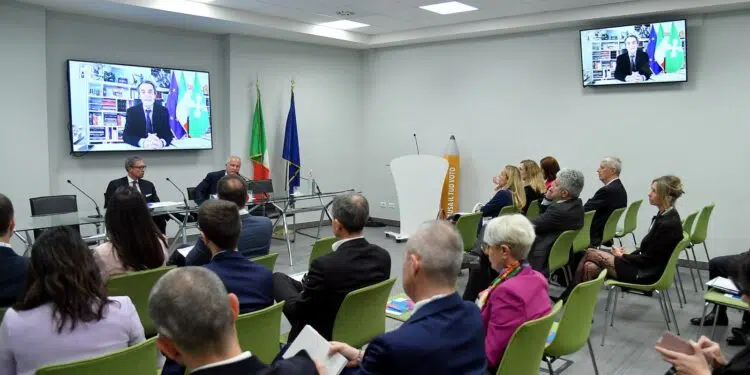Rome – Europe is always involved. Even in the debate on differentiated autonomy, a topic of particular interest to Italy, with the bill that has arrived at the House floor test. Because, especially on the health plan, there is “contact” with continental institutions. “In the future, with climate change, we will have further dramatic repercussions on the health system,” says the director of the EU Commission Delegation in Italy, Antonio Parenti, speaking at the opening of the conference #SALUTE24-Public Health: The Differentiated Autonomy of the Regions in the Health Union, organised by Withub together with Eunews, GEA, Fondazione Art.49, in collaboration with the European Parliament, with the sponsorship of the European Commission and the Conference of Regions and Autonomous Provinces, and with the support of Incyte. “For this,” Parenti adds, “important responses are needed, both European and national.”
In the panel dedicated to “Different Paths to Homogeneous Levels of Performance: the (impossible?) mission of differentiated autonomy“, governors, regional councillors and parliamentarians debated the rule under discussion in the House to get a view as complete as possible of the topic. From the point of view of local authorities, it was the President of the Liguria Region, Giovanni Toti, who gave, as they say, “the headline” to the discussion. “The shake-up of autonomy, I think, can only be good for Italy,” says the governor. Putting at the top of the possible benefits that the reform will bring, the “accountability of a part of the country’s ruling class which, like the Hegelian night, too often tends to distribute the things that are wrong on various layers of government, not allowing the citizen to understand where the mechanism is jammed.”
Senator Beatrice Lorenzin, PD, does not share this viewpoint and is forthright in her remarks: “It is a harmful and useless law.” The former health minister, however, gives detailed reasons for her opinions: “Harmful because it does not solve any of the open issues: inequalities, underfunding, staffing, competitiveness and skills, investment in research, health data, which is also a European issue.” While it is “useless because it does not address the big issues that emerged with Covid, such as building prevention networks with fast inputs between state and regions.” In essence, Lorenzin summarises, “Instead of bridging problems, it accentuates them. It responds to an old, Jurassic political scheme and not to the real needs of citizens, the health system, and the regions themselves. On the contrary, it will exacerbate the rifts between North and South and create new ones even within the North itself.”
Indirectly, in the video message sent to the organisers, the President of Lombardy, Attilio Fontana, responds, describing himself as “one of the greatest supporters of differentiated autonomy, especially in an area such as health, which has such a great impact on people’s lives.” According to the governor, “too often the issue is posed in antithetical terms, as if the acquisition of greater responsibility and autonomy of management were an alternative to homogeneity of performance. On the contrary,” he continues, “I believe that the responsiveness to needs closer to citizens and territories allows for the most suitable, fastest, and most effective path to be chosen. Health programming that goes beyond the logic of spending caps, of siloed contributions can only help the economic and financial balance of the systems themselves.”
Venetian Governor Luca Zaia was also positive: “Autonomy will allow us to be more competitive and efficient, closer to the people, less waste, the ability to manage the resources, including health resources, that are entrusted to us, in the best possible way.” That is why his region “is ready for the writing of the understanding, in which our idea of autonomy can be given a shape. Autonomy is a process of modernity, enhancement of skills and full assumption of responsibility, which will not lack solidarity and subsidiarity.”
On the same wavelength tunes in the Vice President and Alderman for Health of the Marche Region, Filippo Saltamartini: “Differentiation of regional powers is an old issue, but it is provided for in a constitutional reform sought in 2001 by the left.” Bringing the example of the institution he represents, he explains, “If the National Health Fund is redistributed on the per capita principle, and my region has a balanced budget, I can be exempt from the spending cap, which is national, and hire doctors and staff.” Otherwise, he concludes, “you lock in the whole health care system on the basis of the lowest performance.”
English version by the Translation Service of Withub









